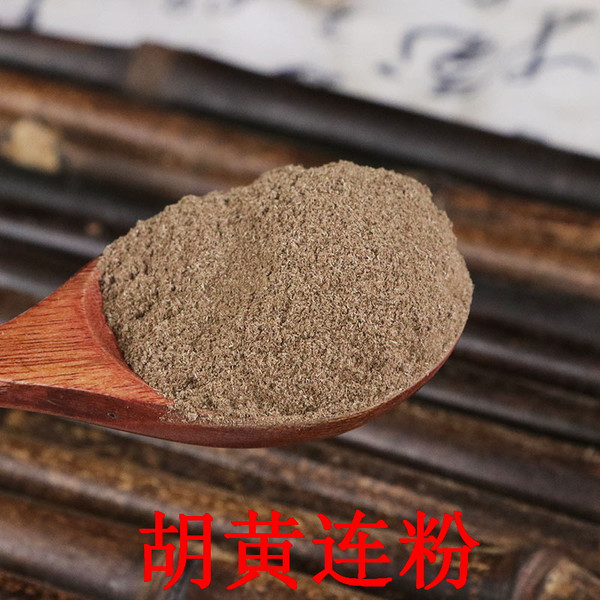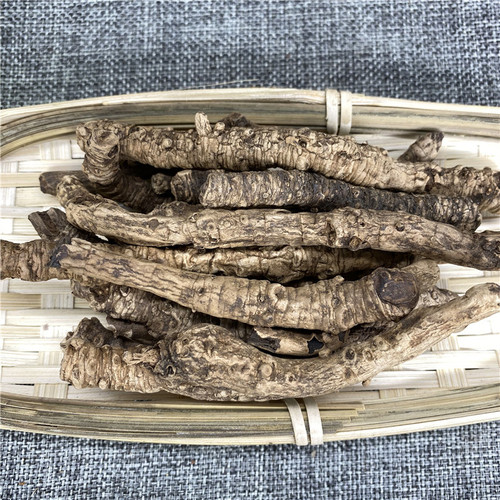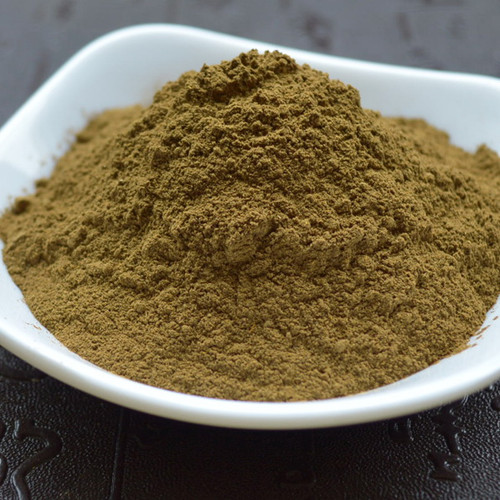Product Overview
Parts used: Dried rhizome
TCM category: Herbs that clear Heat and dry Dampness
TCM nature: Cold
TCM taste(s): Bitter
Meridian affinity: Gallbladder Spleen Stomach Heart Large intestine Liver
Scientific name: Coptis chinensis, Coptis deltoidea or Coptis teeta
Other names: Golden thread, Canker root
Use of goldthread rhizomes (Huang Lian) in TCM
Please note that you should never self-prescribe TCM ingredients. A TCM ingredient is almost never eaten on its own but as part of a formula containing several ingredients that act together. Please consult a professional TCM practitionner, they will be best able to guide you.
Preparation: Remove impurities, soak in water, cut in slices and dry. Crush before use.
Dosage: 1 - 9 grams
Main actions according to TCM*: Expels Damp-Heat especially in the Lower Burner. Eliminates Fire toxicity especially when there is associated Dampness. Acts as a sedative by eliminating Heart Fire. Eliminates Stomach Fire. Expel parasites
Primary conditions or symptoms for which goldthread rhizomes may be prescribed by TCM doctors*: Abdominal bloating Vomiting Acid reflux Fever Bloody sputum Nosebleed Toothache Carbuncles Sores Eczema Conjunctivitis Insomnia Restlessness
Contraindications*: Should not be used by those with Stomach or Spleen Qi Deficiency especially when there is diarrhea. It should also not be used by those with Yin Deficiency, or when there is vomiting or nausea due to Cold.
Common TCM formulas in which goldthread rhizomes are used*:
For severe high fever combine goldthread rhizomes with honeysuckle flowers (Jin Yin Hua) and baikal skullcap roots (Huang Qin).
For Heat in all the Three Burners with symptoms of irritability, dry mouth and dark urine combine goldthread rhizomes with cape jasmine fruits (Zhi Zi).
For insomnia caused by a lack of communication between the Heart and Kidneys combine goldthread rhizomes with cinnamon bark (Rou Gui).
For Hot type dysentery combine goldthread rhizomes with costus roots (Mu Xiang).
For diarrhea with Stomach Heat and an inability to ingest food combine goldthread rhizomes with ginseng (Ren Shen).
For Heat in the Stomach with symptoms of toothache, mouth sores, facial swellings, bad breath and dry mouth combine goldthread rhizomes with bugbane rhizomes (Sheng Ma), mudan peony bark (Mu Dan Pi), unprepared rehmannia (Di Huang) and dong quai (Dang Gui).
For fullness and distension of the abdomen due to Heat accumulation combine goldthread rhizomes with rhubarb (Da Huang).
For indigestion due to heavy, greasy foods and digestive disorders due to heat combine goldthread rhizomes with eupatorium herbs (Pei Lan).
For Blood-Heat, febrile illnesses, clouding of consciousness and/or exanthems combine goldthread rhizomes with woad leaves (Da Qing Ye), cape jasmine fruits (Zhi Zi), red peony roots (Chi Shao), mudan peony bark (Mu Dan Pi) and bugbane rhizomes (Sheng Ma).
For Heat in the Stomach and Heart with painful obstruction of the throat, sores in the tongue, mouth and throat combine goldthread rhizomes with woad leaves (Da Qing Ye), woad roots (Ban Lan Gen), ningpo figwort roots (Xuan Shen), gypsum (Shi Gao) and cape jasmine fruits (Zhi Zi).
For abdominal pain and nausea due to tapeworms, especially with Cold deficiency combine goldthread rhizomes with sichuan pepper (Hua Jiao) and chinese plums (Wu Mei).
For dysentery due to Damp-Heat combine goldthread rhizomes with purslane (Ma Chi Xian) and baikal skullcap roots (Huang Qin).
For Summer-Heat with thirst, irritability and fever combine goldthread rhizomes with adzuki beans (Chi Xiao Dou) and liquorice (Gan Cao).
Key TCM concepts behind goldthread rhizomes (Huang Lian)'s properties
In Traditional Chinese Medicine (TCM), goldthread rhizomes are plants that belong to the 'Herbs that clear Heat and dry Dampness' category. Herbs in this category are used to clear inflammatory and infectious conditions, referred to as 'Internal Heat' in TCM. This is why most of the herbs in this category will have both antibacterial and antiviral properties. In TCM one has too much 'Heat' in their body as a result of a deficiency of 'Yin' (which is Cold in nature, see our explanation on Yin and Yang) or, more commonly, an excess of Yang (Hot in nature). Herbs that clear Heat and dry Dampness treat the latter while, at the same time, relieving the body of excess Dampness. As such they tend to be Cold or Neutral in nature.
As suggested by its category goldthread rhizomes are plants that are Cold in nature. This means that goldthread rhizomes typically help people who have too much "heat" in their body. Balance between Yin and Yang is a key health concept in TCM. Those who have too much heat in their body are said to either have a Yang excess (because Yang is Hot in nature) or a Yin deficiency (Yin is Cold in Nature). Depending on your condition goldthread rhizomes can help restore a harmonious balance between Yin and Yang.
Goldthread rhizomes also taste Bitter. The so-called "five elements" theory in Chinese Medicine states that the taste of TCM ingredients is a key determinant of their action in the body. Bitter ingredients like goldthread rhizomes tend to have a cleansing action on the body by clearing heat, drying dampness and promoting elimination via urination or bowel movements.
The tastes of ingredients in TCM also determine what organs and meridians they target. As such goldthread rhizomes are thought to target the Gallbladder, the Spleen, the Stomach, the Heart, the Large intestine and the Liver. Similar to modern medicine, in TCM the Gall Bladder stores and releases bile produced by the Liver. It also controls the emotion of decisiveness. The Spleen on the other hand assists with digestion, blood coagulation and fluid metabolism in the body. The Stomach is responsible for receiving and ripening ingested food and fluids. It is also tasked with descending the digested elements downwards to the Small Intestine. In addition to regulating blood flow, the Heart is believed to be the store of the "spirit" which basically refers to someone's vitality. The Large Intestine receives the "impure" parts of the digested food from the Small Intestine, absorbs the remaining fluids and excrete the remainder as feces. The Liver is often referred as the body's "general" because it is in charge of regulating the movements of Qi and body fluids. It also takes a leading role in balancing our emotions.






